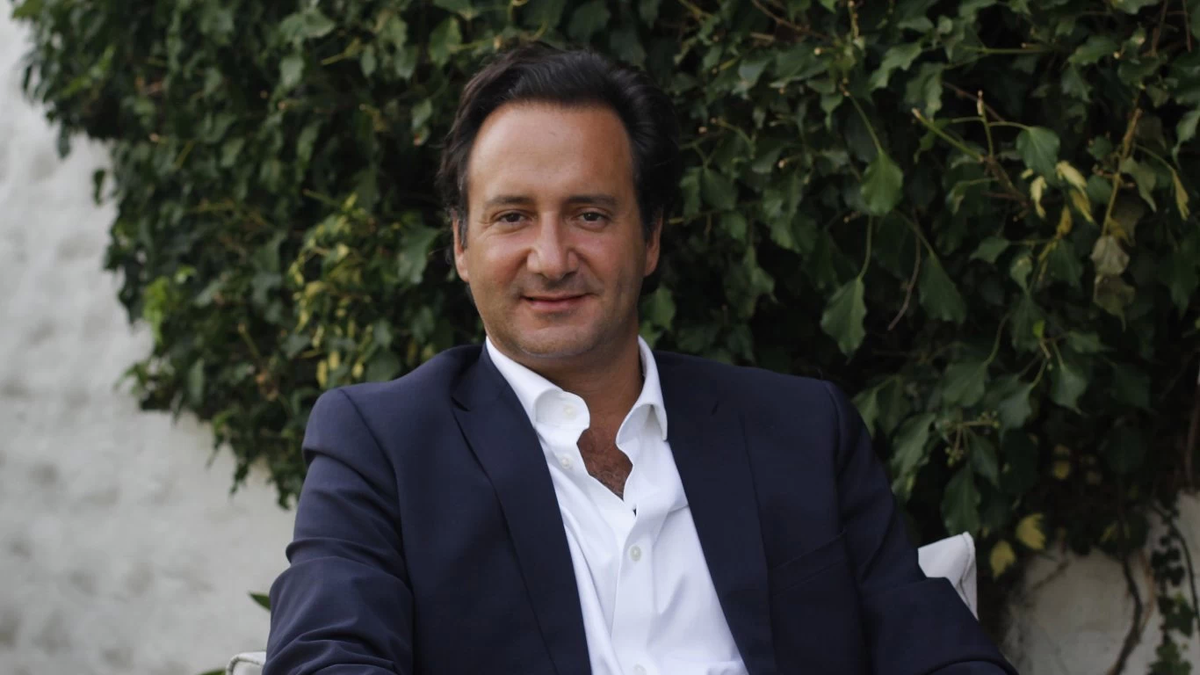So there is a lighthouse there and it is the approach that we present at the regional level. For this reason, it was a presentation of Uruguay not only at the level of all of Latin America, but of what is happening at the level of the global geopolitics.
The evaluation will be permanent and with a tendency towards an uncertain future, but with little probability that this will be finished in a moment. bipolar worldUSA-China, but that on the Chinese side also appears Russia and today’s topic appears, which is already from the West, because it is also Europe with the United States.
The global situation has become very polarized and this has consequences from every point of view, starting with the most basic than the economic. In other words, this has consequences that can generate opportunities for certain Latin American countries in their commercial relationship with North America and with Europe in particular.
Let’s keep this in mind: there may be opportunities for large countries in the region, such as Mexico, which has production capacity in the industrial manufacturing sector, is already being seen in value chains with the United States making inputs. But also for the small countries of the region, such as Uruguay.
There is the opportunity, not through manufacturing, but through services and we are already experiencing it and have experienced it in recent years with the software industrywith professional services.
The United States is our main customer for services and if we add goods and services they are close to China to see who is the main trading partner
There is a component that happens to have a new value which is the cultural closeness or the conviction of commitment to the values of liberal democracy, with all that this implies in a new framework that must be able to take advantage of it, because as we said in the presentation, the great challenge facing Latin America is to grow.
The first thing you have to do is have good policies for the economy to grow , go solve the problems of income distribution institutions that are gigantic, growth later has to be transformed into development and inclusion.
– So, is it aligned with the idea expressed by President Luis Lacalle Pou of opening up to the world beyond the limits set by regional integration processes, for example?
– I believe in opening, because it is a mechanism that generates conditions to compete and that creates opportunities. The evidence shown in the world -this is not a belief- is to look at how the development of countries has been and there are practically no cases of countries that without opening up commercially but protecting themselves, have managed to improve people’s quality of life.
It is not an opinion, it is what has happened in the world in the last 30 years in all regions. So there is a way that shows what generates better quality of life in people. This has to be accompanied by social policies so that these economic opportunities also generate greater well-being.
– Speaking of liberal democracy and liberalism, can you continue thinking about the Uruguayan State, that “fat” State or do you have to lower that weight a bit?
– The State has an important role to play in all this dynamic, because in this greater opening it is necessary to ensure that certain types of jobs that are complex, that are increasingly demanding, are inserted and opportunities are generated for those who are prepared because the reality is that competition is competition.
But there are people who are not yet ready for that competition and there they need a State, they have a role to play, but they also know that those who are going to be left out are going to have to be taken care of by social policies, where the role of the State is increasingly ever more important
More than the size, what matters is that it does its job wellIn other words, that it meets the objectives of generating opportunities for people with lifelong training, that the education it provides is better.
– You have recently published a book that talks about building hope. What is it like for an economist to talk about something so intangible?
– The title summarizes the spirit of the book, which is an ordered compilation of more than 20 years of studies in public policies in all areas, but which have a common factor that is a optimistic vision of Uruguay and the opportunities that the country has; an optimistic vision that is not utopian because it is based on reality, on visualizing an opportunity that is available with this global situation.
Uruguay in recent years has an accumulation that has transcended governments of all colors, of all parties and has positioned itself as an example of liberal democracy in Latin America and in the world.
But you have to build the hope of having a better country for those who live in our country and for those who want to come from abroad to live here with real opportunities. In other words, the opportunity has to be translated into concrete facts.
This comes hand in hand with investments that have to come to Uruguay and materialize, but for that to happen there are a series of reforms that the country has to process. Some of them are on track, others are still in the very early stages and there is a lot at stake in the coming years and beyond.
– What should be done in that regard?
In education, beyond formal education, there is a gigantic training agenda. Throughout the 325 pages of the book, he goes through different political reforms, with proposals, with numbers, with research, because the construction is based, not on prejudice, but on evidence that works in other countries.
It must be based on research, on concrete evidence and on genuine dialogue between the parties, which has to be an informed dialogue. The book has data from all areas of the citizen security for example, with a chapter based on evidence, not myth or prejudice.
But it also goes through social policies, the international situation of the country, the sectors that have been engines of growth over the last 30 years and their potential, so it is very broad and invites reflection.
– Is your contribution to the destruction of hope in the possibility of participating in politics in the short term?
– No. The hope is to contribute where I am. And it is in that place where I think I can contribute the most to the country.
Source: Ambito




